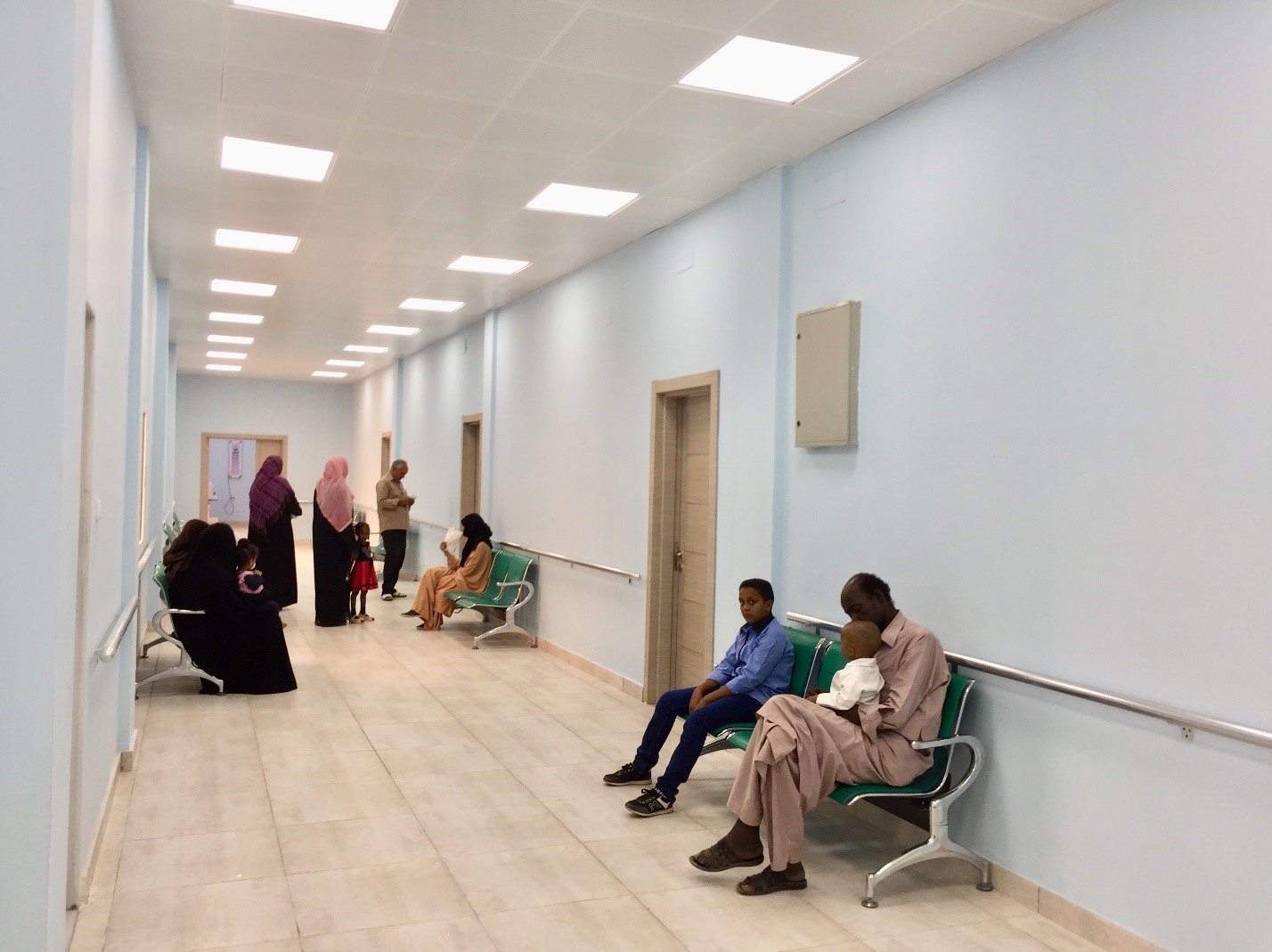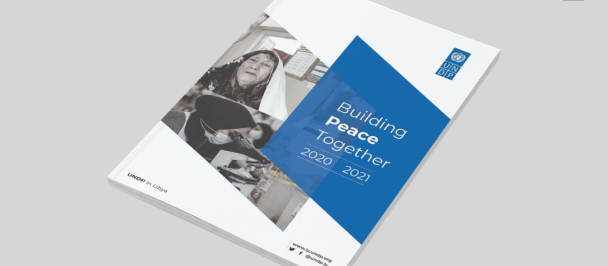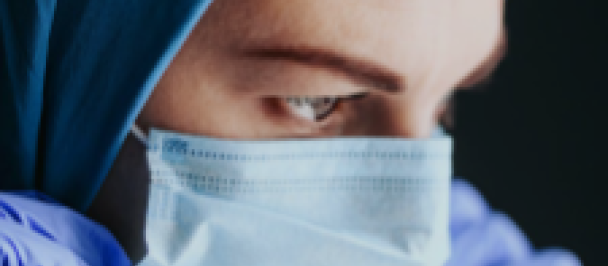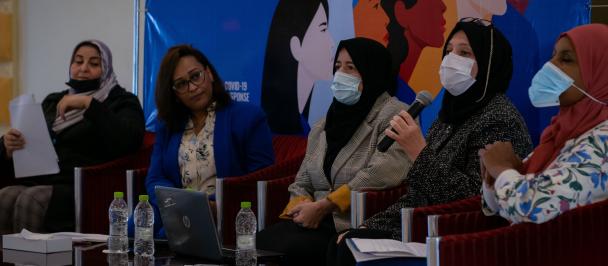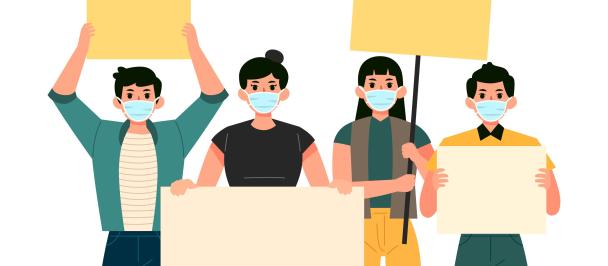Nine years of conflict has damaged countless buildings across Libya, leaving them demolished or unfunctional. The destruction of buildings hindered essential basic services for people such as education and healthcare.
In Sebha, Al-Gurda Clinics Compound has been one of the most important health centers providing healthcare services to not only people in Sebha, but to people living in neighboring villages as well. In 2014, the building was damaged during armed conflict, disrupting services and affecting the lives of the 36,000 people who relied on it for their medical needs.
UNDP through the “Resilience4Libya” project which is supported by the European Union renovated the building, restoring the facility to bring back healthcare services to the municipality. The renovation included the installation of new doors, windows, plumping and wall painting.
2018. Patients at the renovated section of Al-Gurda Clinics Compound in Sebha wait for their appointments. Photo: © UNDP Libya
New challenges arise
Staff at Al-Gurda Clinic Compound ensure COVID-19 safety measures are taken by frequently sanitizing the area. Photo: © UNDP Libya/ Ali Alshareef
In 2020, the COVID-19 pandemic took the world at large to reach conflict-affected Libya. As the outbreak stretched to Sebha, the municipality appointed Al-Gurda Clinic Compound as the focal medical facility for COVID-19 testing and treatment. The clinic was not only serving people from Sebha but welcomed people from other cities as well. The clinic has been responding to the pandemic by conducting coronavirus detection tests, providing treatment and transferring patients who test positive for the virus to the raspatory clinic and treatment center.
Souad Abdullah, nurse at the National Center for Disease Control explains, “We have been receiving dozens of patients from the north of the country. One of the families we received had traveled 600 kilometers to get their COVID-19 tests done here because the health centers in the north are not able to accommodate the high demand.”
Nurse Souad Abdullah tests a patient for COVID-19 at Al-Gurda Clinics Compound in Sebha. Photo: © UNDP Libya/ Ali Alshareef
Dr. Lafi Muhammad, a doctor at the clinic who is also serving as a volunteer at the COVID-19 Pandemic Control Committee mentions that the clinic received more than 7,000 patients during 2020.
Finding strength amidst the chaos
The overstretched healthcare system has also had a toll on the health workers who have been struggling with fatigue, stress and long working hours in their fight against the pandemic. Faced with unprecedented challenges, the staff at the clinic have had to step up, putting their lives at risk, to attend to people’s needs.
“We witnessed very difficult days inside this facility. The medical staff were running in havoc trying to save people’s lives as we were receiving dozens of patients from the entire country,” Nurse Souad continues saying.
Nurse Zainab Muhammad shares her experience of the situation, "my family has been opposed to the idea of me volunteering as part of the Pandemic Control Committee since the beginning. I was also afraid as I would risk infecting my family, but the humanitarian drive and the national duty I felt was stronger. I felt that it was my duty to service my community and city.” She continues, “when we save a patient’s life, it gives us the strength to endure. A patient came to us one day and after she learned that she tested positive for COVID-19, she had a nervous breakdown. Some people think the virus is deadly and cannot be cured. We supported her emotionally and helped her relax. She received the treatment and she got better.”
Supported by a functioning facility and proper equipment
Staff at Al-Gurda Clinic Compound ensure COVID-19 safety measures are taken by frequently sanitizing the facility. Photo: © UNDP Libya/ Ali Alshareef
Staff at the center have shown a remarkable resilience and professional dedication fueled by their passion of serving others. Being able to work in a proper, functioning facility with the needed equipment has further supported their efforts in attending the health needs of the community.
The Director of the clinic, Al-Qardah Abu Athaba Muhammad declares, “the maintenance of the clinic came at the right time and presented a quick solution to the dilapidated building that was not suitable for health work. For medical staff to be able to help patients to the best of their abilities, the environment which they work in has to be suitable for them and the patients. We hope that this cooperation with UNDP continues for us to be able to serve the people of Sebha and neighboring areas.”
Nurse Zainab reiterates, “UNDP has provided us with a suitable place to work. The healthy and functioning building allows us to work in a comfortable environment, stimulating us with the energy we need. We thank the EU who made this renovation possible and we hope that the facility receives more support to help us in the battle against COVID-19.”
UNDP’s “Resilience4Libya” project has been supporting various municipalities across Libya respond to the pandemic since the beginning. The medical facilities rehabilitated by UNDP with the support of the EU in Benghazi, Kufra, Sabratha, Murzuq, Ghat and Thala are also serving as main healthcare service points in the respective cities and neighboring villages, serving around 800,000 people. The project has also provided ambulances to several medical establishments in Tripoli, Murzuq, Kufra and Derj to help health workers respond rapidly to critically affected patients.

 Locations
Locations